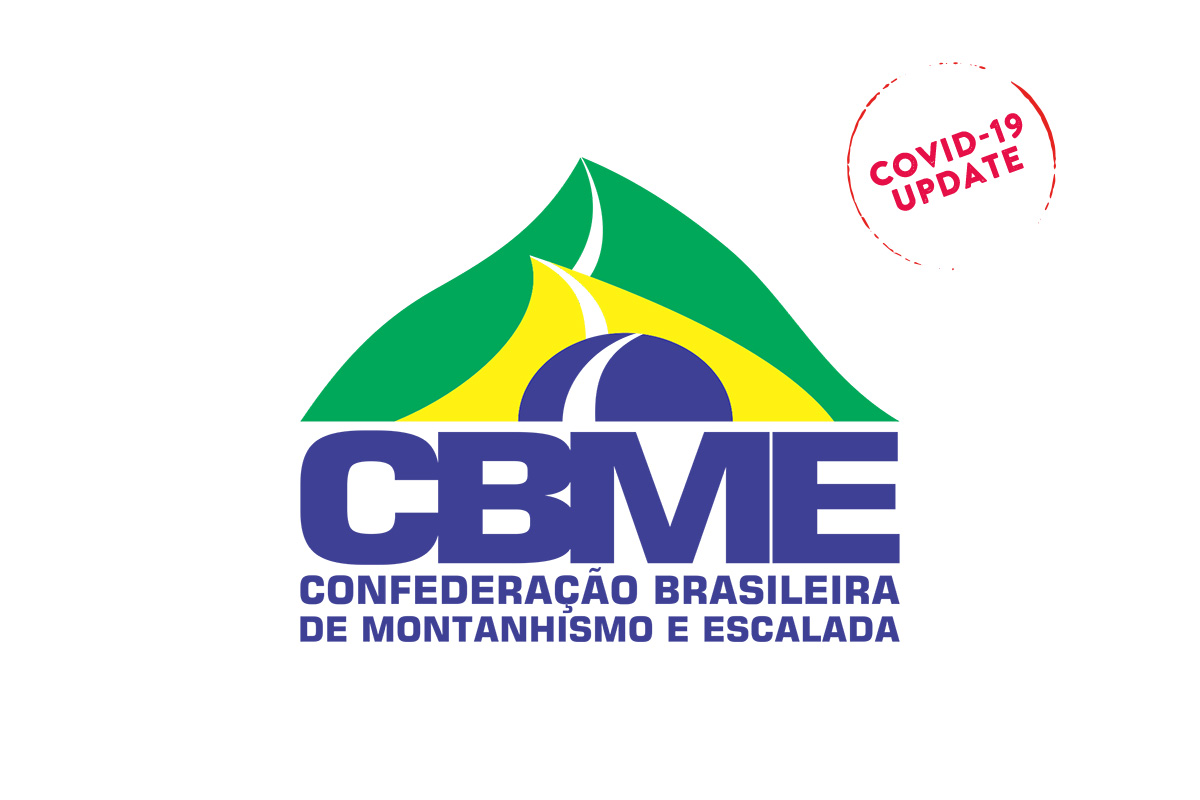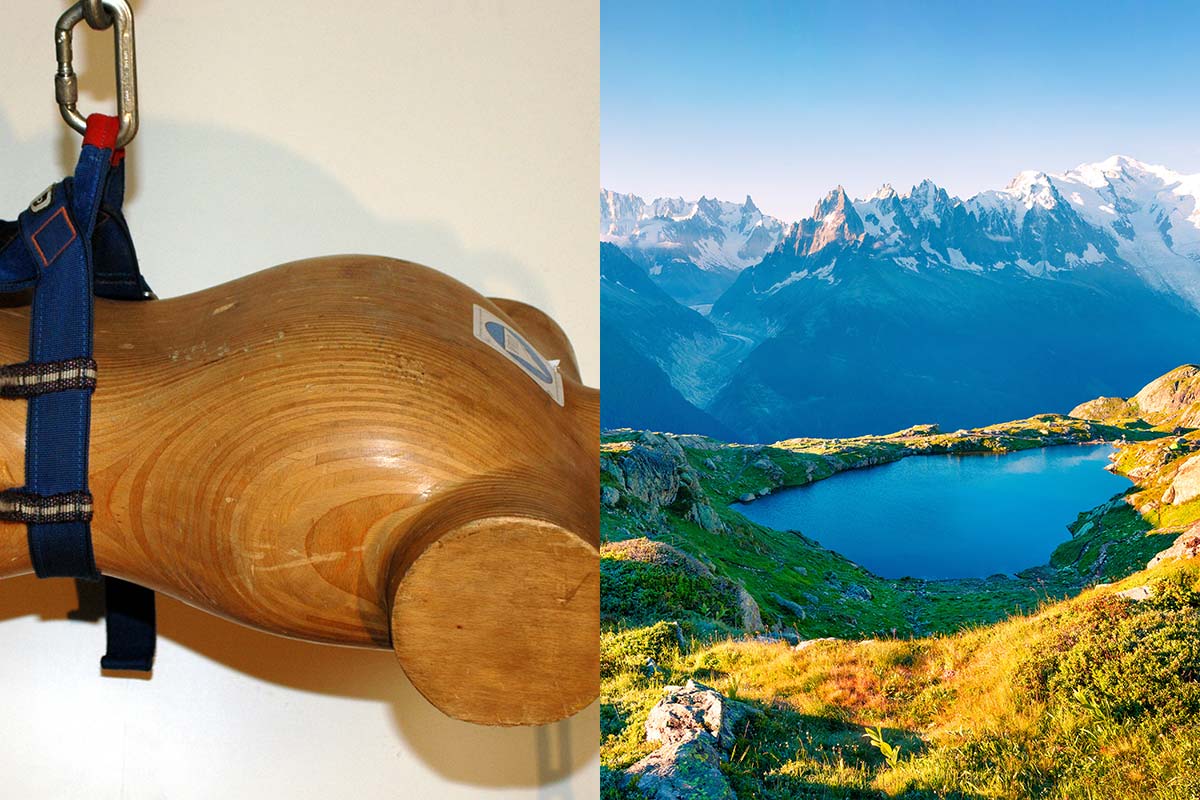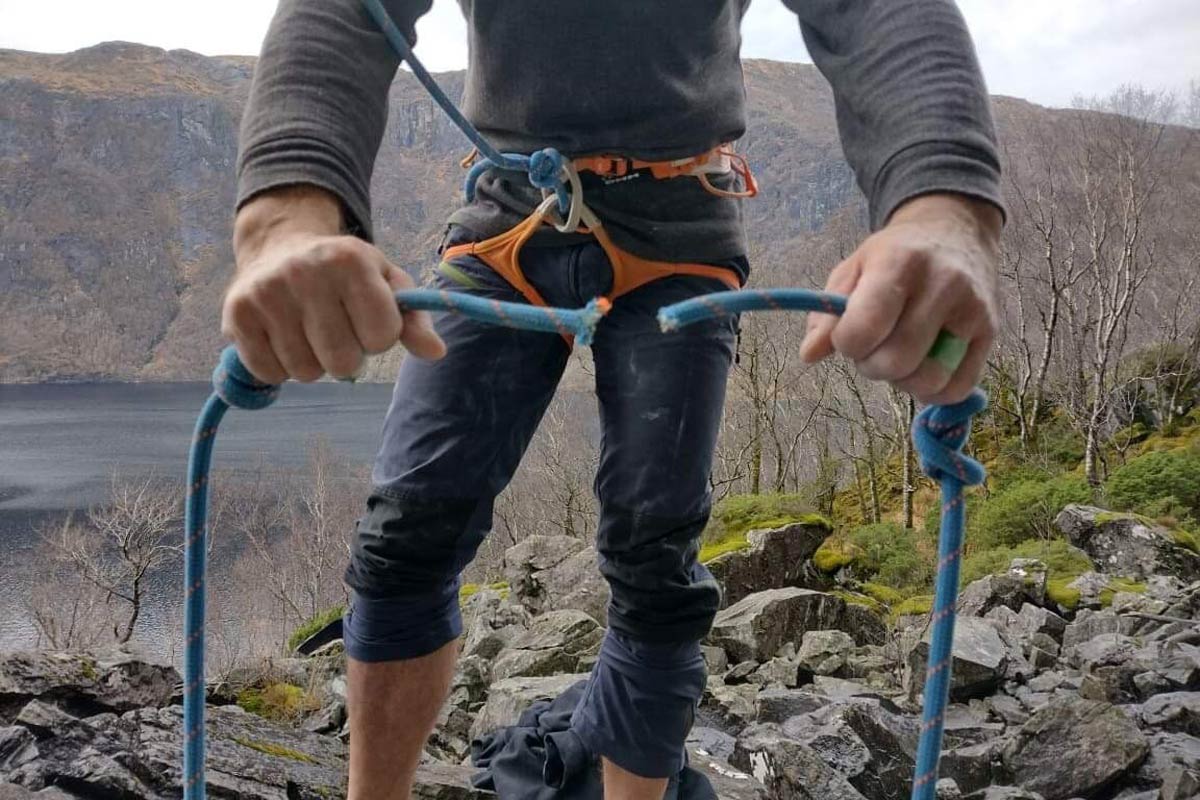The following article is an update from the previous communication (see below) shared by CBME – Brazilian Mountain Hiking and Climbing Confederation (CBME) – the UIAA’s full member in Brazil.
8 April Update (translated from original article in Portuguese)
The Brazilian Mountaineering and Climbing Confederation (CBME) published a note on 24/03/2020 on the practice of mountaineering in the face of the COVID-19 pandemic and we have updated the guidelines here.
CBME emphasizes the need for everyone to follow the preventive measures stipulated by the authorities to help control the spread of the coronavirus. In view of the current pandemic scenario and in line with its member entities, CBME recommends that all climbers – trail hikers and climbers – follow the recommendations to remain in social isolation and stay at home as long as possible.
The decision to stay at home is not an easy one and we know the impact it has on our lives. We miss the smell of the bush, to dive into the waterfall, to touch the rock, to feel the arm pump, to be with friends. Climbing, hiking, mountaineering, bouldering define us, they are part of who we are. We understand the feeling and share the nostalgia, the need, the will.
But now, more than ever, we need to apply the knowledge acquired on the mountain – interdependence, partnership, risk management, etc. – everyday life. The concept that our safety and that of others is a consequence of each person’s decision should also be applied in daily choices, which currently presupposes avoiding circulation as much as possible.
Our trail projects, sending that route or that problem or reaching that summit can wait. The moment is one of solidarity, empathy, togetherness for the common good, for the benefit of the whole of society.
We count on you! Stay at home!
See also some questions and answers and tips here.
Questions & Answers
The following Q&As were published by CBME to its members. The below is a Google translation from the original article in Portuguese.
The CBME, on 24/03/2020, issued recommendations on how to practice mountaineering outdoors when the general recommendation is to stay at home. What was the motivation?
CBME was based on the guidelines and recommendations of the Brazilian Society of Exercise and Sport Medicine (reports of 17 and 19/03/2020), the Ministry of Health and the World Health Organization on the day of publication of the note.
In places where there was no legal restriction, these organizations did not discourage physical exercise outdoors as long as it was done individually, avoiding crowds and close personal contacts, and it was possible to maintain the recommended care for respiratory and hygiene etiquette. It is worth mentioning that there are places where the prohibition of exercising outdoors can be decreed by an act of the legislature or the executive. In such cases, no outdoor exercise should be practiced.
But in a note published on 07/04/2020 CBME shows a position for everyone to stay at home. What has changed?
During this brief period, several academic-scientific entities such as the Brazilian Society of Exercise and Sport Medicine updated their recommendations. CBME promoted an internal debate based on these updates and in the context of sport at the practice sites, with a consensus in favour of social isolation.
In addition, since the release of the note on March 24, the scenario has changed for the worse and forecasts say it will still get worse. The Ministry of Health website on 04/04/2020 registered 11,130 cases in Brazil and 486 deaths. It is worth remembering that we can assume that the number of cases must be greater considering the limitation of tests available in the country. In addition, data from countries such as Italy and the USA, show the importance of respecting social isolation.
Although these numbers are increasing and reach the whole society, we are receiving information from people climbing in different places, although this contradicts the recommendations of CBME, UIAA, the Brazilian Society of Exercise and Sports, the Ministry of Health and the World Organization of Health. In addition, a mountaineer case still demanded rescue, using precious time and resources from public health agents who could be destined to fight the coronavirus.
The information also arrived that they would be encouraging people to travel to climb in a wrong interpretation of the CBME note. Therefore, we want to clarify, highlight and reemphasize the CBME note:
- It’s not the time to travel
- Climbing is not recommended, in any of its modalities
- Agglomerations must be avoided at all costs, including in mountain huts and shelters.
Does this recommendation apply to all types of mountaineering?
CBME understands that mountaineering includes the activities of climbing and walking on trails and some derived practices and is valid for all these modalities.
In my state there is no quarantine, can I travel to climb or hike?
In CBME’s opinion, it is not the time to travel recreational, however close it may be. We need to remember that we can have the virus without any signs or symptoms and many mountaineering places – climbing and trails – are small, rural communities with limited access to medical services, such as Três Picos (RJ), Pedra do Baú (SP), Serra do Cipó (MG) and others. Unintentionally, we may be expanding the spread of the virus to these locations with less hospital infrastructure and service capacity. Also, the Minister of Health has already said that we will need to relocate material and human health resources, in places that are affected at different times by the epidemic, which implies recognizing that even an unsaturated resource in a region, must be used sparingly, so you don’t miss out on another location.
Extra guidelines and suggestions
Climbing is my life! I need to climb!
As climbers and climbers, we understand the feeling and importance that these activities have in our lives. We miss the smell of the bush, to dive into the waterfall, to touch the rock, to feel our arms pump, to be with our friends. These activities define us as people, they are part of who we are … We understand the feeling and share the nostalgia, the need, the will.
However, we need to remember that while we may feel that we will die (metaphorically) from not climbing or being in the mountains for a while, people are literally dying from the coronavirus. Let’s think about the most vulnerable and set an example …
Let us be responsible and supportive. The mountains will remain there.
But there are people going to climb….
We know that some people are choosing not to be isolated and, with that, circulating… We cannot control others, only ourselves: Continue to follow isolation and recommendations. These people are unlikely to do so out of ignorance about the situation, so “shouting and cursing” is likely to have little resonance in these people. Try to promote behaviour change without cursing, without personally defaming others.
We need more unity, more solidarity.
What can I do at this moment inside the house?
There are a few ways to stay connected to climbing and hiking right now:
- Several climbing and mountaineering films were made available for free on the internet.
- Maintain your equipment (follow the tips in the manuals and brands for that).
- Take the time to develop your knowledge: see lectures, debates, online courses on mountaineering and climbing.
- Write about that climb, that adventure, that trail. Share your ideas and thoughts with others on how to promote the development of mountaineering.
- Keep exercising at home, which can help strengthen your body and mind.
I work directly with mountaineering and COVID-19 will directly impact my income. What can I do?
We understand the economic impact that isolation and possible quarantine can have on the business of guides, instructors, shelter owners and climbing walls, and we sympathize. Some ideas to consider: Consider selling guided tours, classes and courses now to be scheduled after the end of the pandemic (create, for example, a voucher) If you have a refuge, consider a promotion to encourage people to buy daily rates that can be booked after the end of the pandemic. For example: lower the daily rate, include a pizza, a full price beer, etc. For climbing walls, ask people who have monthly fees and packages to keep them active within the possibilities of each and consider giving them a bonus in the future. Think about how to engage your customers with lectures, debates and interactions online. With these suggestions we do not want to teach how to run businesses, they are just ideas. Other resources UIAA created a page with news and information about the coronavirus for climbers. Sports psychologist and CEO of the organization called Climbing Psychology, Madeleine Crane, wrote an article giving tips to climbers during the period of social isolation. The article and webinar (literal translation: Mental health tips for climbers during social isolation) is in English, but can be translated by free online tools.



